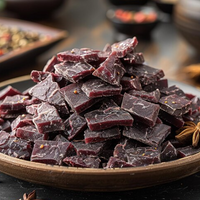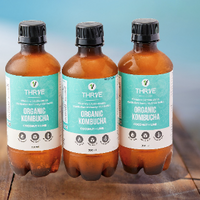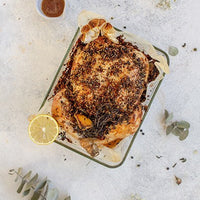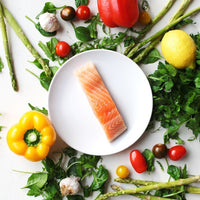Move aside yoghurt and sauerkraut, these surprisingly common staples are great gut foods. Bonus: they won’t blow the budget, either!

Firstly, a quick 101 – getting enough good bacteria is essential for gut health. These good bac are known as probiotics and they’re live microorganisms. You can bump up your intake with fermented veggies, yoghurt, tempeh, miso soup, kombucha or a quality supplement.
However, if you only remember one thing, this is it: even if you’re eating plenty of probiotics, they cannot survive without prebiotics. These are the non-digestible fibres that actually feed the probiotics in your system. Without them, your hard work could be going to waste!
The benefits of good gut health go far beyond just de-bloating – even your so-called “second brain” is in your gut. Scientists believe your gastrointestinal system essentially speaks to your brain – so if it’s irritated, you might experience a low mood too. So how do you feed it? Read on for some simple suggestions.
Broccoli
Broccoli could be a new gut health hero. Research from Penn State University found eating broccoli can help you better tolerate digestive conditions, such as leaky gut. This occurs when your intestinal lining is compromised, making your gut vulnerable to attack from toxins and microorganisms, and less able to absorb nutrients. Few disclaimers: the research has only been tested on mice. Also, you’d need around 3.5 cups of broc to have a positive effect. If that’s too much – brussels sprouts contain three times as much of the same chemical compound, so you could just have 1 cup of them instead.
Cold Roasted Potatoes
Yes, potatoes can be on the menu! The key is to cook and cool them. This process creates retrograded resistant starch (RS) – a prebiotic that’s great food for your good bacteria. Resistant starch can boost gut function and quash bad bac – plus, it has a host of broader health benefits.
Cooking and cooling helps reduce the carb load of the potatoes, although if you’re following an ultra low carb diet you should still be cautious. Good news: you don’t have to eat them cold either – you can warm them, just don’t obliterate them in the oven. We like them in a salad or as a side to a high protein meal. Another great source of RS is underripe, green banana, but that might be less, err, a-peel-ing.
Carrots
THR1VE nutritionist Shannon Young recommends carrots because they contain arabinogalactans (more of a mouthful than underripe banana, right?). “This dietary fibre helps probiotic bacteria flourish and discourages the growth of opportunistic ‘bad’ bacteria.” Young says. “Carrots also benefit the immune system (up to 80% of which resides in our gut) by helping to defend the body from free radical damage, harmful bacteria, viruses and inflammation.” Try them steamed and paired with grilled chicken or fish.
Bone broth
Another favourite of Young’s, this has a multitude of gut-healing properties. Bone broth is essentially just slow-cooked broth made from leftover meat bones. This means it’s seriously cheap to make – there’s plenty of recipes online – or you can buy it, too.
“Bone broth supports the growth of good bacteria and reduces inflammation in the digestive tract,” Young explains. “It is also high in collagen – people who suffer from digestive imbalances generally have low serum concentrations of collagen. Collagen helps build the tissue that lines the entire GI tract to support healthy digestive function and restores the strength of the gut lining.”
Garlic
Keep the mints at the ready because garlic is a powerhouse. “Garlic has the properties necessary to balance stomach bacteria, necessary for a healthy gut. Plus, garlic can help bolster your immune system by keeping the beneficial bacteria healthy enough to help fight off disease,” says Young. “Garlic is high in oligo-saccharides – they are carbohydrates that we are unable to digest in our gut. This means they stay in our gut and are eventually broken down by our gut bacteria. This is a natural process which feeds the beneficial bacteria and keeps our gut healthy.” If you find it too strong, try it minced in your dish of choice.
Young has a word of warning though: “Some people can experience gut symptoms such as bloating, gut pain, altered bowel habits and excess wind from high consumption of oligo-saccharides.” In short, don’t pop a whole bulb at once.






